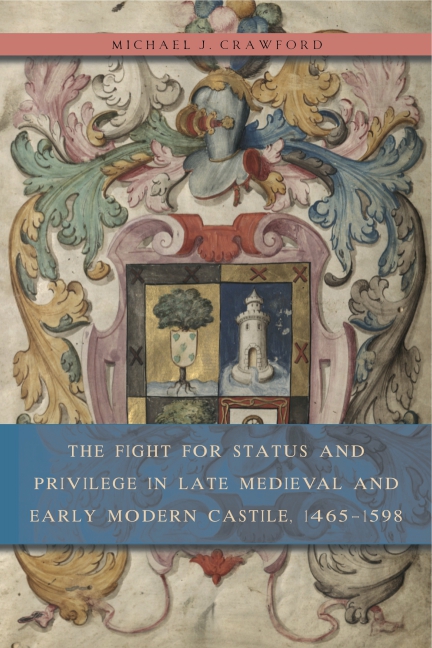New from Penn State University Press:
The Fight for Status and Privilege in Late Medieval and Early Modern Castile, 1465–1598, by
Michael J. Crawford (McNeese State University). A description from the Press:
In The Fight for Status and Privilege in Late Medieval and Early Modern Castile, 1465–1598, Michael Crawford investigates conflicts about and resistance to the status of hidalgo,
conventionally understood as the lowest, most heavily populated rank in
the Castilian nobility. It is generally accepted that legal privileges
were based on status and class in this premodern society. Crawford
presents and explains the contentious realities and limitations of such
legal privileges, particularly the conventional claim of hidalgo
exemption from taxation. He focuses on efforts to claim these
privileges as well as opposing efforts to limit and manage them.
Although historians of Spain acknowledge such conflicts, especially
lawsuits associated with this status, none have focused a study on this
extraordinarily widespread phenomenon. This book analyzes the inevitable
contradictions inherent in negotiation for and the implementation of
privilege, scrutinizing the many jurisdictions that intervened in these
struggles and debates, including the crown, judiciary, city council, and
financial authorities. Ultimately, this analysis imparts important
insights about the nature of sixteenth-century Castilian society with
wide-ranging implications about the relationship between social status
and legal privileges in the early modern period as a whole.
And more, from reviewer Scott K. Taylor (
University of Kentucky):
What did it mean to be an hidalgo? This was a important status
in late medieval and early modern Spain, one that all historians know
was crucial—but none have really known much about it until now. Michael
Crawford argues that hidalguía had little to do with the two
main justifications that contemporary Spaniards gave for the privilege:
that it either derived from a racial understanding of inherited nobility
or was a reward for service to the king. Instead, noble status was
fluid, contingent on circumstance, political networking, and the ability
to carry out lengthy lawsuits successfully. Using hitherto unexploited
sources, Crawford’s subtle analysis displays the rich complexity of
local government in early modern Spain, pulling attention away from the
so-called absolutism of the central government and showing how much more
important the officials, regulations, and courts of local
municipalities were in the real lives of Spaniards.
Additional information is available
here.
